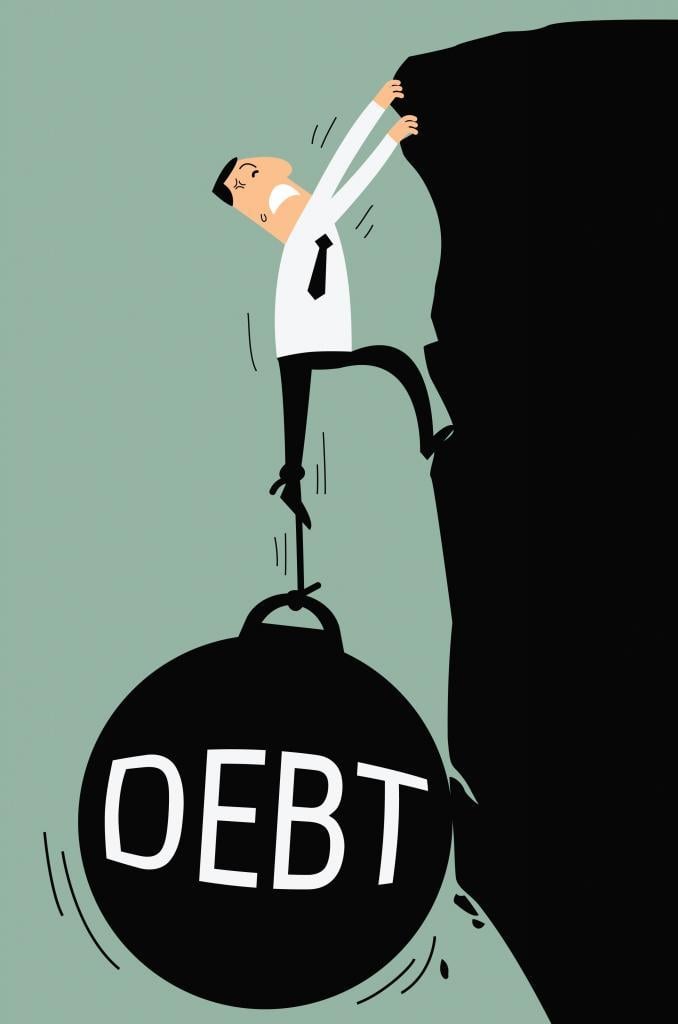
Debt Repayment Bond in Canada
Understanding The Debt Repayment Bond
There are truly thousands of Canadians that have succumbed to debt. This is unfortunate, but these individuals need to take action and regain their good standing, before it is too late. Unfortunately the debt repayment process is much easier said than done. A comprehensive and reasonable payment plan needs to be setup and both sides of the arrangement want to consider utilizing a debt repayment bond to protect their interests. There is always a possibility that the debtor will falter and fail to make the payments. This is why it is a good idea to use a debt consolidation company. Within this guide, you’ll learn all about the debt repayment bond.
Debt Repayment Services 
Millions of Canadians have found themselves sinking in debt at some point in their lifetime. Instead of filing bankruptcy, many of them turn to debt repayment services. These companies assist clients in setting up monthly, affordable payments on their debts, which means they are responsible for collecting and filing some very important data. Companies will always be at risk of making damaging errors, when collecting personal data from a large number of clients on a daily basis. This is where a debt repayment bond will come into play.
What Is A Debt Repayment Bond?
A debt repayment bond is an agreement between three parties, which protects clients from fraud damages. The Canadian provincial and territorial governments have formed very strict regulations for debt repayment service providers. The bond is an agreement that assures the public that these companies will comply with these laws and regulations. If they do not, they will risk losing their business license and bond.
Clients will always have the right to file a claim with the surety company, if they witness fraudulent behavior by the company or its employees.
Bond Amount
In order to begin offering debt consolidation or debt repayment services to Canadian consumers, companies will be required to obtain a debt repayment bond. Of course, the specific amount is almost never set in stone. There are numerous variables that can play a role in the determination of the final cost. First and foremost, you need to remember that each Canadian province has a unique set of requirements. Therefore, the bond amount typically varies from location to location. On the other hand, the bond duration may also impact the final price.
Finally, it is essential to know that your credit can play a vital role in this determination.
Who Is The Obligee?
Before moving forward, you should understand that each surety bond comes with three individual parties. Each party is held up to certain standard, within the agreement of the bond. You will be  the principal and will be responsible for abiding by the Canadian statutes, which have been put in place to govern debt repayment companies. On the other hand, the surety bond will be the surety and simply acts as a security for you. Lastly, the obligee is the individual or entity that is requiring you to acquire the bond.
the principal and will be responsible for abiding by the Canadian statutes, which have been put in place to govern debt repayment companies. On the other hand, the surety bond will be the surety and simply acts as a security for you. Lastly, the obligee is the individual or entity that is requiring you to acquire the bond.
The obligee varies from bond to bond, but in most cases, it’ll be a governmental entity. In the case of the debt repayment bond, the obligee will usually be the provincial government, within your operational area.
How Long Does It Take To Get Approved?
If you complete and submit the debt repayment application in a timely manner, you are looking at a 24-48 hour approval. Of course, this time allowance can vary from one Surety Company to another. Otherwise, you should expect a response to your bond request within the time frame.
How It Can Go Wrong
As someone, who is responsible for managing another individual’s finances, you have tons of responsibilities and must abide by the country’s laws. Someone in your position could easily take advantage of the client and swindle them out of their money. The Canadian government has put the bond requirement in place, in order to protect consumers from this type of problem. The bond is there in case something goes wrong and the debt repayment company mishandles the consumer’s finances.
In the event that something goes wrong, the consumer will be able to take action, by contacting the surety company and filing a claim. Once the claim has been filed, the surety company will begin a thorough investigation to get to the bottom of the matter. After the investigation, the surety company will rule for one side of the arrangement. If the consumer wins, they’ll receive the bond amount as reimbursement for their loss.
Getting Bonded Right Away
Remember that your bond is not going to acquire itself. Instead, you’ll need to take the initiative and begin obtaining quotes from various surety companies. Before leaving this page, you should go ahead and complete the application, so you can acquire your first quote sooner rather than later. The application requires no obligation, so get started right now.
Other types of license bonds that we offer:
- Alcohol Bond – Protects the government in the event tax and fees are not paid by businesses.
- Auctioneer Bond – Protects the customer against misrepresented auctioned items.
- Bailiff Bond – Required by a bailiff before employment begins and protects victims of misconduct.
- Collection Agency Bond – Guarantees ethical use of sensitive client information by agencies.
- Consumer Protection Bond – Protects clients from unauthorized use of their information.
- Direct Sellers Bond – Protects the customer that incurs damages as a result of a direct seller.
- Gas Bond – Required by gas installers or gas equipment installers before beginning work.
- Freight Broker Bond – Required by freight brokers before they can accept any orders.
- Home Inspector Bond – Required by home inspectors before conducting inspections.
- Insurance Adjuster Bond – Required by independent insurance adjusters before working.
- Immigration License Bond – Required by immigration consultants before beginning work.
- Livestock Dealer Bond – Required by dealers before buying, selling, and bidding on livestock.
- Mortgage Broker Bond – Ensurers that agents are compliant with provincial regulations and acts.
- Payday Lender Bond – Protects customers from fraud or wrong doings by payday lenders.
- Private Investigator Bond – Required by investigators & employees of the agency before working.
- Real Estate Broker Bond – May be required by realtors along with licensing.
- Telemarketing Bond – Protects customers from frauds and misconduct by telemarketers.
- Travel Agency Bond – Required by travel agencies before working with the public.
